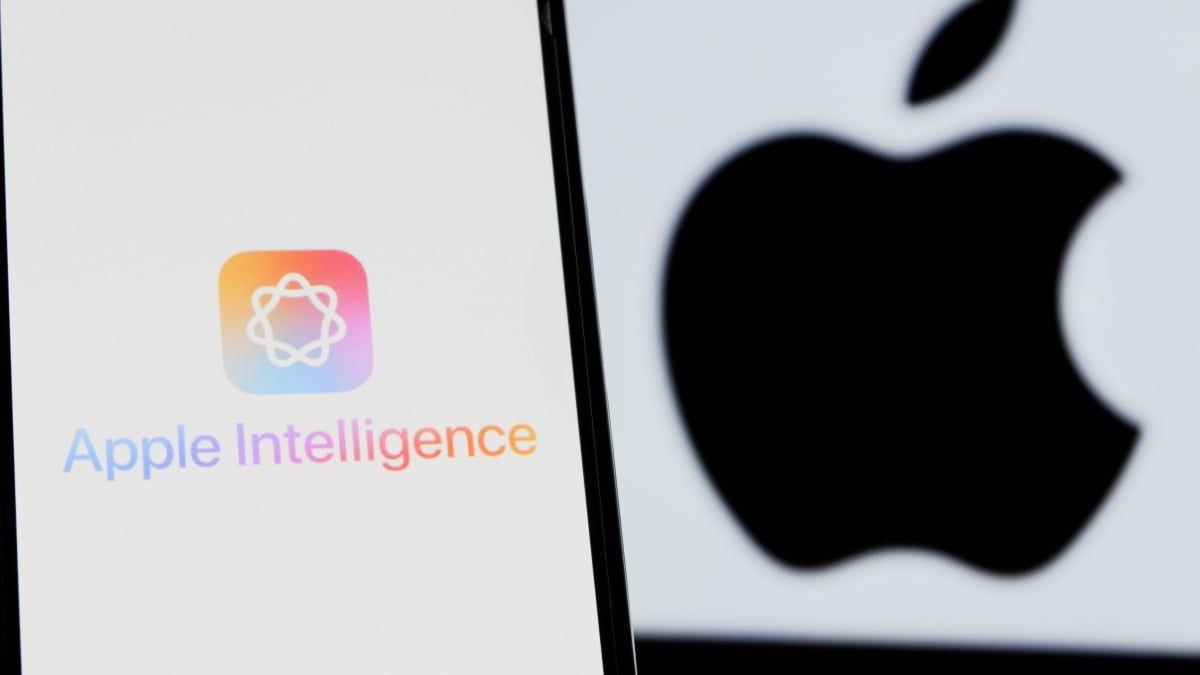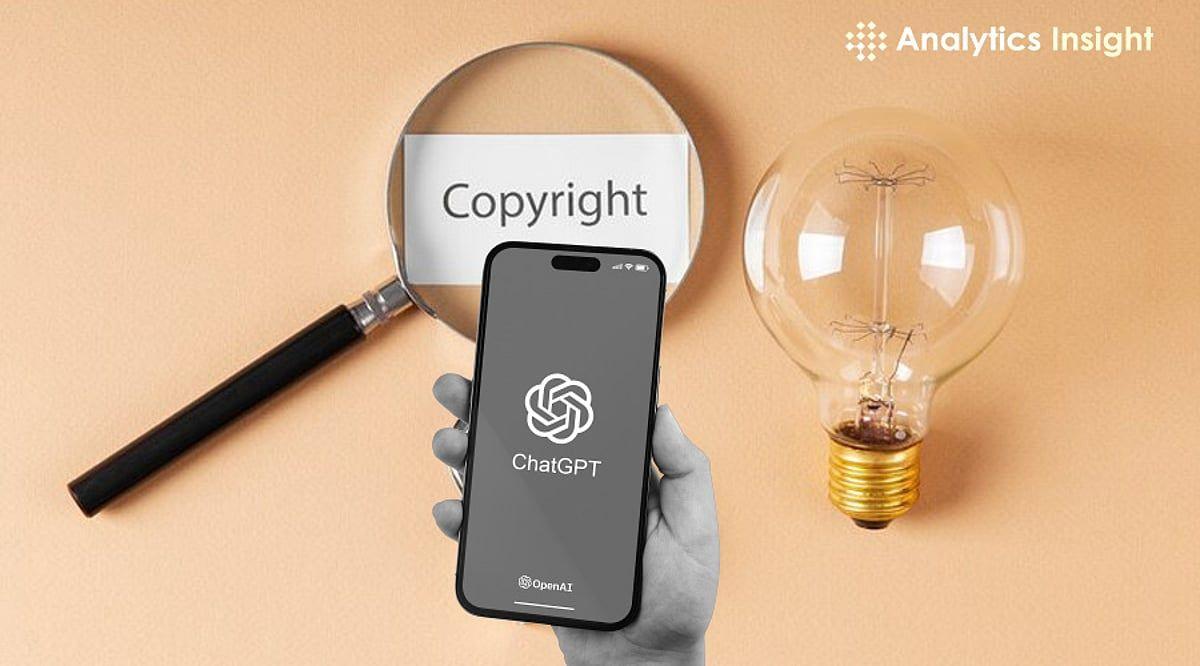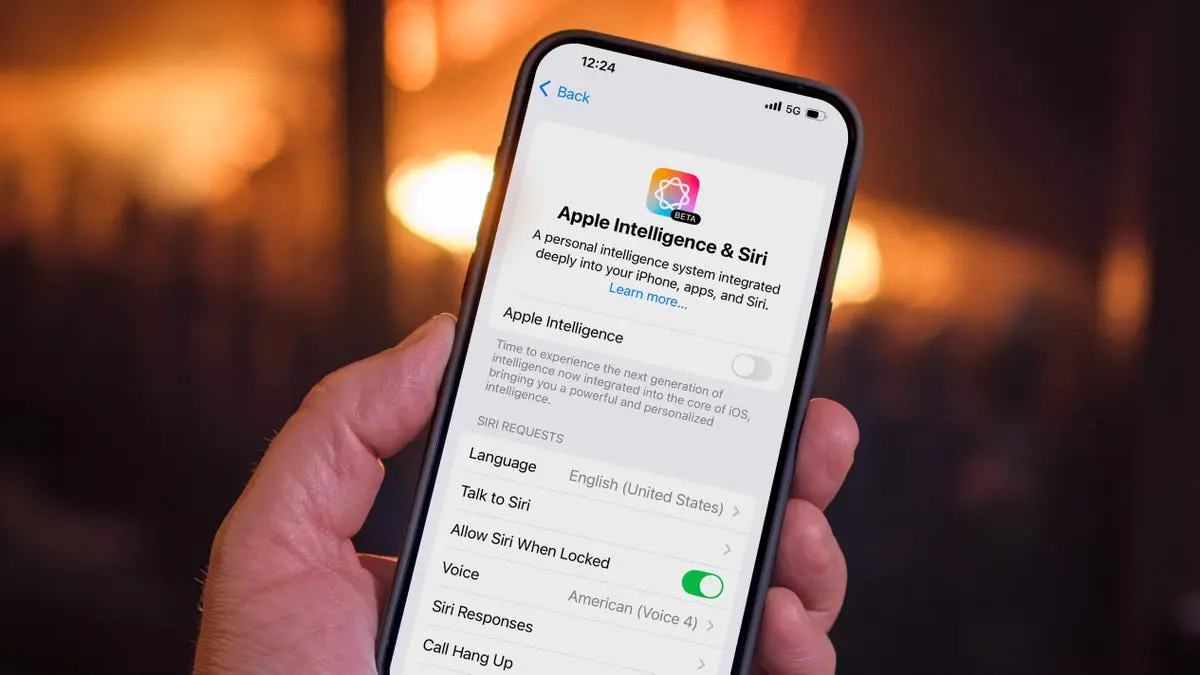Apple Faces Copyright Infringement Lawsuit Over AI Training Practices
7 Sources
7 Sources
[1]
Apple hit with another class action lawsuit for alleged copyright infringement
Just about a month after being accused of using pirated books to train its AI, Apple is facing another similar proposed class action lawsuit. As first reported by Bloomberg Law, two neuroscience professors from SUNY Downstate Health Sciences University in Brooklyn, NY, claimed that Apple used their "registered works without authorization." The neuroscientists, Susana Martinez-Conde and Stephen Macknik, said Apple trained its AI models using "shadow libraries" and "web-crawling software" that provide access to pirated, copyrighted books, including two of their own. In the previous class action lawsuit, a separate pair of authors also alleged that Apple committed copyright infringement when using published works to train Apple Intelligence models without consent. Apple isn't the only tech giant facing copyright lawsuits related to its AI, as OpenAI is in a similar situation after being sued by The New York Times for similar accusations. While these AI models are relatively new, there's already a case that may have set some precedent. Earlier this year, Anthropic settled a class action lawsuit by agreeing to pay $1.5 billion to 500,000 authors involved in the case, which revolved around copyright claims.
[2]
Apple sued for using copyrighted material to train AI, report says
Two separate lawsuits now allege Apple used pirated works to train one of its Apple Intelligence models. Credit: Algi Febri Sugita/SOPA Images/LightRocket via Getty Images Two neuroscientists are suing Apple, alleging that the company trained its AI models using pirated book libraries that included their works and the copyrighted works of others. Apple now joins the ranks of other tech companies like Meta and OpenAI, which have also been sued over their use of copyrighted material to train AI systems. (Disclosure: Ziff Davis, Mashable's parent company, in April filed a lawsuit against OpenAI, alleging it infringed Ziff Davis copyrights in training and operating its AI systems.) Typically, tech companies claim that the fair use legal doctrine allows them to use copyrighted material in this context, even without permission or payment. The lawsuit from Dr. Susana Martinez-Conde and Dr. Stephen Macknik, professors of neuroscience at SUNY Downstate Health Sciences University, is actually the second lawsuit in just over a month that targets the iPhone maker for using copyrighted material to train its Apple Intelligence models. Last month, authors Grady Hendrix and Jennifer Roberson also sued Apple, claiming the company's scraper, Applebot, pulls material from "shadow libraries," online collections of unlicensed copyrighted books. The latest lawsuit from professors Martinez-Conde and Macknik also alleges that Apple is pulling copyrighted material for AI training from shadow libraries. The two plaintiffs say that Apple trained its OpenELM model using a pirated database called Books3, a shadow library that contains research papers, novels, and other works. This is the same pirated dataset at issue in Kadrey vs. Meta and Bartz vs. Anthropic, which were ultimately decided in the AI companies' favor. However, the issue of AI training and copyright remains unsettled while various cases work their way through the U.S. court system. Anthropic also settled a class action lawsuit in September, after being sued by authors over the use of 500,000 pirated works to train the company's AI chatbot Claude. Last month, Anthropic agreed to settle the lawsuit for $1.5 billion. Hendrix and Roberson's lawsuit against Apple also seeks class action status. Apple has previously been sued over Apple Intelligence, although these two lawsuits mark the first time the company has been sued over copyright infringement claims. Earlier this year, Apple was sued for advertising Apple Intelligence features that were delayed and not yet available for consumers. Elon Musk's X also sued Apple over its partnership with ChatGPT creator OpenAI. The deal between Apple and OpenAI involves the AI giant powering some Apple Intelligence features.
[3]
Neuroscientists are suing Apple over its Apple Intelligence AI. Here's why
Susana Martinez-Conde and Stephen Macknik, professors at SUNY Downstate Health Sciences University in Brooklyn, New York, told the court in a proposed class action on Thursday that Apple used illegal "shadow libraries" of pirated books to train Apple Intelligence. A separate group of authors sued Apple last month for allegedly misusing their work in AI training. TECH COMPANIES FACING LAWSUITS The lawsuit is one of many high-stakes cases brought by copyright owners such as authors, news outlets, and music labels against tech companies, including OpenAI, Microsoft, and Meta Platforms, over the unauthorized use of their work in AI training. Anthropic agreed to pay $1.5 billion to settle a lawsuit from another group of authors over the training of its AI-powered chatbot Claude in August.
[4]
Apple sued over use of copyrighted books to train Apple Intelligence
The lawsuit is one of many high-stakes cases brought by copyright owners such as authors, news outlets, and music labels against tech companies, including OpenAI, Microsoft, and Meta Platforms, over the unauthorized use of their work in AI training. Anthropic agreed to pay $1.5 billion to settle a lawsuit from another group of authors over the training of its AI-powered chatbot Claude in August. Apple was hit with a lawsuit in California federal court by a pair of neuroscientists who say that the tech company misused thousands of copyrighted books to train its Apple Intelligence artificial intelligence model. Susana Martinez-Conde and Stephen Macknik, professors at SUNY Downstate Health Sciences University in Brooklyn, New York, told the court in a proposed class action on Thursday that Apple used illegal "shadow libraries" of pirated books to train Apple Intelligence. A separate group of authors sued Apple last month for allegedly misusing their work in AI training. Tech companies facing lawsuits The lawsuit is one of many high-stakes cases brought by copyright owners such as authors, news outlets, and music labels against tech companies, including OpenAI, Microsoft, and Meta Platforms, over the unauthorized use of their work in AI training. Anthropic agreed to pay $1.5 billion to settle a lawsuit from another group of authors over the training of its AI-powered chatbot Claude in August. Spokespeople for Apple and Martinez-Conde, Macknik, and their attorney did not immediately respond to requests for comment on the new complaint on Friday. Apple Intelligence is a suite of AI-powered features integrated into iOS devices, including the iPhone and iPad. "The day after Apple officially introduced Apple Intelligence, the company gained more than $200 billion in value: 'the single most lucrative day in the history of the company,'" the lawsuit said. According to the complaint, Apple utilized datasets comprising thousands of pirated books as well as other copyright-infringing materials scraped from the internet to train its AI system. The lawsuit said that the pirated books included Martinez-Conde and Macknik's "Champions of Illusion: The Science Behind Mind-Boggling Images and Mystifying Brain Puzzles" and "Sleights of Mind: What the Neuroscience of Magic Reveals About Our Everyday Deceptions." The professors requested an unspecified amount of monetary damages and an order for Apple to stop misusing their copyrighted work.
[5]
Apple Accused of Training Its New AI System Using Pirated Books
Neuroscientists Susana Martinez-Conde and Stephen L. Macknik have filed a class action lawsuit against technology giant Apple Inc. The complaint, lodged with the United States District Court for the Northern District of California, alleges that the company committed widespread copyright infringement in the development of its new artificial intelligence system, 'Apple Intelligence'. Specifically, the plaintiffs assert that Apple utilised datasets comprised of thousands of copyrighted works, including their own published books, without consent or remuneration. The filing maintains that Apple scraped material from illicit sources, notably 'shadow libraries" of pirated books, to train its Large Language Models (LLMs). Consequently, this uncompensated use allegedly allowed Apple to develop a core product, Apple Intelligence, thus boosting the firm's market value significantly upon its announcement by over $200 billion. Furthermore, the professors seek to represent a class of similarly situated copyright holders whose works Apple allegedly copied unlawfully. Whilst the suit requests a jury trial and unspecified monetary damages, a central demand calls for the destruction of all LLM models and their training sets that incorporate the pirated materials. Therefore, the outcome of this case holds considerable implications for how tech firms acquire data to fuel the rapidly expanding field of generative AI. The core of the plaintiffs' claim rests on the assertion that Apple deliberately sourced illegal copies of copyrighted material to construct the foundation of Apple Intelligence. Notably, the lawsuit identifies two key repositories of pirated data allegedly used by the defendant: the controversial Books3 collection and the larger dataset known as The Pile. Crucially, Apple's GitHub repository revealed that training of the company's language models relied, in part, on The Pile. However, the plaintiffs contend that The Pile fundamentally incorporates the Books3 shadow library, a repository infamous for containing over 170000 pirated electronic books as of 2023. Accordingly, the neuroscientists' works, 'Champions of Illusion' and 'Sleights of Mind', became part of this corpus. The complaint stresses that since their titles were present in the training datasets used, Apple copied the works in their entirety without any form of authorisation. They claim that Apple's documentation itself provides the necessary proof of infringement by referencing The Pile as a training source. The filing explicitly quotes the legal premise of their case, stating: "Because Plaintiffs' copyrighted book is part of Books3, Apple copied in its entirety without authorization, and trained OpenELM, on one or more copies of the Plaintiffs' copyrighted works and directly infringed Plaintiffs' copyrights along with the copyrights of the Class." The intellectual property dispute over generative AI training has unfolded rapidly across US courts. First, the landmark Thomson Reuters v. Ross Intelligence case, filed in 2020, set an early precedent. The court found in early 2025 that a competitor's use of copyrighted summaries (headnotes) to train a legal AI was not fair use because it directly competed with the original work's potential market. Following this, the true floodgates opened. In 2023, several high-profile class actions began against major AI developers, including Getty Images v. Stability AI and The New York Times v. OpenAI, which alleged massive, uncompensated copying of visual and literary works. Furthermore, in a related action in India, news agency Asian News International (ANI) first filed a copyright lawsuit against OpenAI, alleging that the AI startup used its "original news content". Subsequently, the Digital News Publishers Association (DNPA) and its prominent members, including NDTV, The Hindu, The Indian Express, and Hindustan Times, intervened in the ANI case, citing the alleged unauthorized scraping and use of their copyrighted news content for AI training. Consequently, attention turned to the Bartz v. Anthropic class action, which became pivotal in June 2025. A US District Judge issued a mixed but crucial ruling: training an AI on lawfully acquired copyrighted works could constitute fair use, yet training on pirated copies obtained from 'shadow libraries' did not. Therefore, the distinction between legal and illegal data sourcing became a major liability factor. Crucially, in September 2025, Anthropic agreed to pay a minimum of $1.5 billion to settle the class action over its use of pirated books, marking the largest publicly reported copyright recovery in history. The lawsuit filed by neuroscientists against Apple Inc. is highly significant because it immediately tests the powerful legal precedent established by the Bartz v. Anthropic settlement. Crucially, Bartz demonstrated that training AI on illegally obtained content from 'shadow libraries' is not protected by fair use, resulting in Anthropic's staggering $1.5 billion payout and a court order to destroy pirated works. Therefore, the Apple lawsuit, which alleges the use of thousands of pirated books for training Apple Intelligence, directly applies this massive liability risk to the world's largest tech firm. Moreover, the plaintiffs are not just seeking damages; they are demanding the destruction of the infringing LLM models themselves. Consequently, this case forces the entire industry to confront the legitimacy of its foundational datasets. Ultimately, the outcome will define whether AI developers can survive using pirated material or if they must urgently pivot to verifiable, ethically sourced data for sustainable, lawful development.
[6]
Apple Joins OpenAI and Meta in Copyright Lawsuits Over AI Training Practices
Apple has been hit with a proposed class action lawsuit in federal court in California, on claims that it utilized copyrighted books to train its new model, Apple Intelligence. The plaintiffs, neuroscientists Susana Martinez-Conde and Stephen Macknik, allege that Apple used unlawful so-called shadow libraries of pirated material to train its artificial intelligence system. According to filings submitted by Reuters, professors at SUNY Downstate Health Sciences University in Brooklyn report that thousands of copied books and other copyrighted materials were included in the AI training datasets provided by Apple. The complaint also cites their own books as examples of the allegedly unauthorized books: Champions of Illusion and Sleights of Mind. The claims unspecified monetary damages and seeks an injunction from the court against Apple's further use of the copyrighted content in its AI systems. Apple has not yet published a response to the allegations.
[7]
Apple sued over use of copyrighted books to train Apple Intelligence
(Reuters) -Apple was hit with a lawsuit in California federal court by a pair of neuroscientists who say that the tech company misused thousands of copyrighted books to train its Apple Intelligence artificial intelligence model. Susana Martinez-Conde and Stephen Macknik, professors at SUNY Downstate Health Sciences University in Brooklyn, New York, told the court in a proposed class action on Thursday that Apple used illegal "shadow libraries" of pirated books to train Apple Intelligence. A separate group of authors sued Apple last month for allegedly misusing their work in AI training. TECH COMPANIES FACING LAWSUITS The lawsuit is one of many high-stakes cases brought by copyright owners such as authors, news outlets, and music labels against tech companies, including OpenAI, Microsoft, and Meta Platforms, over the unauthorized use of their work in AI training. Anthropic agreed to pay $1.5 billion to settle a lawsuit from another group of authors over the training of its AI-powered chatbot Claude in August. Spokespeople for Apple and Martinez-Conde, Macknik, and their attorney did not immediately respond to requests for comment on the new complaint on Friday. Apple Intelligence is a suite of AI-powered features integrated into iOS devices, including the iPhone and iPad. "The day after Apple officially introduced Apple Intelligence, the company gained more than $200 billion in value: 'the single most lucrative day in the history of the company,'" the lawsuit said. According to the complaint, Apple utilized datasets comprising thousands of pirated books as well as other copyright-infringing materials scraped from the internet to train its AI system. The lawsuit said that the pirated books included Martinez-Conde and Macknik's "Champions of Illusion: The Science Behind Mind-Boggling Images and Mystifying Brain Puzzles" and "Sleights of Mind: What the Neuroscience of Magic Reveals About Our Everyday Deceptions." The professors requested an unspecified amount of monetary damages and an order for Apple to stop misusing their copyrighted work. (Reporting by Blake Brittain in Washington, Editing by Alexia Garamfalvi and Rod Nickel)
Share
Share
Copy Link
Apple is hit with a class action lawsuit by neuroscientists alleging unauthorized use of copyrighted books to train its Apple Intelligence AI model. This case adds to the growing legal challenges faced by tech giants over AI training methods.
Apple's AI Training Practices Under Legal Scrutiny
Apple, the tech giant known for its innovative products, is now facing a significant legal challenge over its artificial intelligence (AI) training practices. A class action lawsuit has been filed against the company, alleging copyright infringement in the development of its Apple Intelligence AI model
1
2
.
Source: Mashable
The Lawsuit and Its Plaintiffs
The lawsuit was filed by two neuroscientists, Dr. Susana Martinez-Conde and Dr. Stephen Macknik, professors at SUNY Downstate Health Sciences University in Brooklyn, New York. They claim that Apple used their copyrighted works without authorization to train its AI models
3
.Allegations of Pirated Content Use
The plaintiffs allege that Apple utilized "shadow libraries" and "web-crawling software" to access pirated, copyrighted books, including two of their own works: "Champions of Illusion: The Science Behind Mind-Boggling Images and Mystifying Brain Puzzles" and "Sleights of Mind: What the Neuroscience of Magic Reveals About Our Everyday Deceptions"
1
5
.The Controversial Datasets
The lawsuit specifically mentions two controversial datasets allegedly used by Apple:
- Books3: A shadow library containing over 170,000 pirated electronic books as of 2023.
- The Pile: A larger dataset that incorporates Books3 and was reportedly used in training Apple's language models
5
.
Impact on Apple's Market Value
The complaint highlights the significant impact of Apple Intelligence on the company's market value. According to the lawsuit, "The day after Apple officially introduced Apple Intelligence, the company gained more than $200 billion in value: 'the single most lucrative day in the history of the company'" .

Source: Engadget
Related Stories
Broader Context of AI and Copyright
This lawsuit is not an isolated incident but part of a growing trend of legal challenges faced by tech companies over AI training practices. Similar lawsuits have been filed against other tech giants like OpenAI, Microsoft, and Meta Platforms
3
.
Source: Analytics Insight
Legal Precedents and Settlements
The outcome of this case could have significant implications for the AI industry. A recent settlement by Anthropic, which agreed to pay $1.5 billion to authors over the training of its AI chatbot Claude, sets a notable precedent
2
3
.The Fair Use Debate
Tech companies typically argue that the fair use doctrine allows them to use copyrighted material for AI training without permission or payment. However, this interpretation is being challenged in courts, with some rulings suggesting that training AI on pirated copies obtained from 'shadow libraries' may not constitute fair use
5
.References
Summarized by
Navi
Related Stories
Recent Highlights
1
Google Gemini 3.1 Pro doubles reasoning score, beats rivals in key AI benchmarks
Technology

2
ByteDance's Seedance 2.0 AI video generator triggers copyright infringement battle with Hollywood
Policy and Regulation

3
ChatGPT cracks decades-old gluon amplitude puzzle, marking AI's first major theoretical physics win
Science and Research








